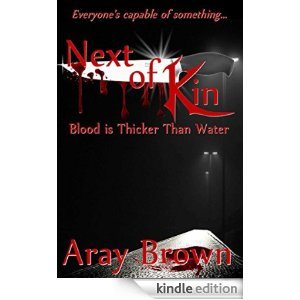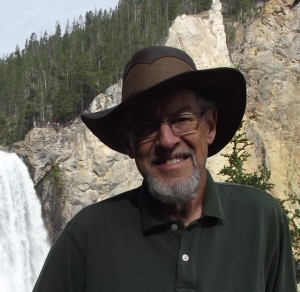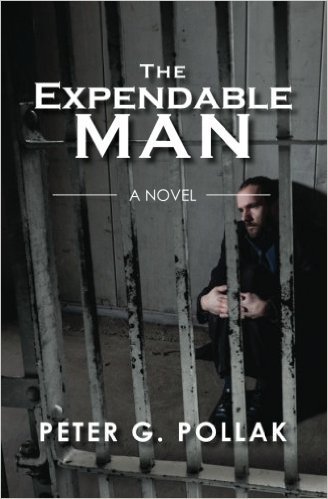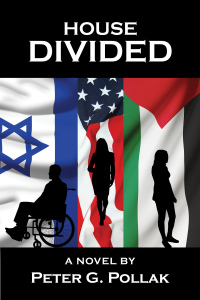S.K. Thomas's Blog, page 3
June 23, 2016
Too Many Books, Not Enough Visine
There is an endless supply of books out there while people look for reviewers all the time. Hence, too many books and not enough Visine, especially for those brave and courageous book reviewers who love to read. No longer are they under siege with stacks and towers of books lost in their own forts coming out only for coffee, snacks or even bathroom breaks as they are hunkered down in a library toiling away page after page. They sat there disheveled and stressed questioning if deadlines could be met while worried the magazine, newspaper or whatever press agency they worked for will go to press before they can eloquently give their well-executed review. Nope, today book reviewers have never ending emails and lists of books with author websites, social media haunts and links to find the coveted book online. Always in the comfort of their own home with all the lead way they could ever possibly imagine. They can easily set up their review, post it online anytime with the understanding that the internet will take care of the rest (immediately, if not within a 24 hour period). Then, plug a mention on any social media site before running to the next adventure on the list.
Is this really the truth about reviewers today? Since the boom of e-books, book reviewers are still under stress and pressure of too many books and not enough Visine. I myself have shopped my books around to book reviewers, only to find they get so bombarded with requests and have to implement a set of rules with many specifications to help the process find some kind of order. Beware, if you’re not a follower of guidelines then it will be deleted immediately while they move on to the next. I’ve seen blogs and websites of book reviewers shut down simply because there were too many books and not enough Visine. And this is not a time to get ill or limp along for any reason as a book reviewer, because you will get run over by the ample requests impossible to keep up with when someone is laid up in bed too sick to handle the work load. Websites stop accepting review requests temporarily, for such instances.
I saw a need, so I threw my hat into the ring. I became a book reviewer (after several authors liked and appreciated my reviews) back when I took a break from my next novella.
I'm here to report that I learned a thing or two:
1) You’re only as overloaded as you allow yourself to be – Book reviewing should be fun as you get sucked into the creation of the author and a world of their imagination.
2) I set up my review request site very simply. There are no major rules or implications, just simply fill out your information. When I can get to it, I will be more than happy to contact you through email. No muss, no fuss.
3) If I’m not interested in your book for whatever reason, probably nothing to do with you anyway, I will not read it. But will be happy to let you know, so you’re not waiting around to wonder.
4) And when I can get it done, I will get it done. I will be more than happy to stay in contact and follow, friend or whatever you do on social media while I try to give an honest and authentic review.
Overall, I think it depends on the person conducting the book reviews and what their schedule is like. I was very pleased to learn the best thing about reviewing books is you get to read a lot of different authors, especially indie. These are creative individuals are writing for the love and pleasure of it. Whether it’s the beginning writer who makes their first entrance into this scene or the starving artist with hopes that this particular book will get them where they finally need to go. These are people who really need and value a book review, because every review gets them one stepping stone closer to their goal and overall dream. These are people who give you (the book reviewer) time to enjoy the book and drink it in like a fine wine. Usually there are no deadlines that loom and I find myself happy to keep in touch with them long after the experience is over. For them, I’d be more than willing to run out of Visine and have way too many books to enjoy! After all, if you read books that everyone else is reading, you can only think what everyone else is thinking.
Simply post a comment to start a conversation.
http://www.skthomasauthor.com for all things SK Thomas


Is this really the truth about reviewers today? Since the boom of e-books, book reviewers are still under stress and pressure of too many books and not enough Visine. I myself have shopped my books around to book reviewers, only to find they get so bombarded with requests and have to implement a set of rules with many specifications to help the process find some kind of order. Beware, if you’re not a follower of guidelines then it will be deleted immediately while they move on to the next. I’ve seen blogs and websites of book reviewers shut down simply because there were too many books and not enough Visine. And this is not a time to get ill or limp along for any reason as a book reviewer, because you will get run over by the ample requests impossible to keep up with when someone is laid up in bed too sick to handle the work load. Websites stop accepting review requests temporarily, for such instances.
I saw a need, so I threw my hat into the ring. I became a book reviewer (after several authors liked and appreciated my reviews) back when I took a break from my next novella.
I'm here to report that I learned a thing or two:
1) You’re only as overloaded as you allow yourself to be – Book reviewing should be fun as you get sucked into the creation of the author and a world of their imagination.
2) I set up my review request site very simply. There are no major rules or implications, just simply fill out your information. When I can get to it, I will be more than happy to contact you through email. No muss, no fuss.
3) If I’m not interested in your book for whatever reason, probably nothing to do with you anyway, I will not read it. But will be happy to let you know, so you’re not waiting around to wonder.
4) And when I can get it done, I will get it done. I will be more than happy to stay in contact and follow, friend or whatever you do on social media while I try to give an honest and authentic review.
Overall, I think it depends on the person conducting the book reviews and what their schedule is like. I was very pleased to learn the best thing about reviewing books is you get to read a lot of different authors, especially indie. These are creative individuals are writing for the love and pleasure of it. Whether it’s the beginning writer who makes their first entrance into this scene or the starving artist with hopes that this particular book will get them where they finally need to go. These are people who really need and value a book review, because every review gets them one stepping stone closer to their goal and overall dream. These are people who give you (the book reviewer) time to enjoy the book and drink it in like a fine wine. Usually there are no deadlines that loom and I find myself happy to keep in touch with them long after the experience is over. For them, I’d be more than willing to run out of Visine and have way too many books to enjoy! After all, if you read books that everyone else is reading, you can only think what everyone else is thinking.
Simply post a comment to start a conversation.
http://www.skthomasauthor.com for all things SK Thomas


Published on June 23, 2016 10:54
•
Tags:
authors, blog, books, reviewers, reviews, storytelling, telling-stories, visine, writing
June 16, 2016
Silent Surrender
Release...stress, pressure, tension, and control.
Surrender means a willingness to be vulnerable, aware and committed to your vision. Surrender is giving in, to relent and crumble.
It's about how writing wants to be created, rather than imposing ourselves into it. Don't make an outline, a plot or a plan. Succumb to the flow, cadence and pulse of the gift being bestowed upon you. Sit, relax, clear your head and let the doors to your imagination open. Out it will come all by itself. Be silent and listen, do it for the love of writing.

If you surrender to your imagination, the story will write itself. - quote
Often my characters don't know what the issues are. They think they're doing one thing, but something else is actually orchestrating their lives. - quote

SK Thomas is a writer, author, book reviewer and the curious creative complex brain behind this blog.
Keep in touch with the blogger/author:
Website: http://www.skthomasauthor.com
Twitter: @skthomasauthor
Member of Goodreads, LinkedIn & Google+
Surrender means a willingness to be vulnerable, aware and committed to your vision. Surrender is giving in, to relent and crumble.
It's about how writing wants to be created, rather than imposing ourselves into it. Don't make an outline, a plot or a plan. Succumb to the flow, cadence and pulse of the gift being bestowed upon you. Sit, relax, clear your head and let the doors to your imagination open. Out it will come all by itself. Be silent and listen, do it for the love of writing.

If you surrender to your imagination, the story will write itself. - quote
Often my characters don't know what the issues are. They think they're doing one thing, but something else is actually orchestrating their lives. - quote

SK Thomas is a writer, author, book reviewer and the curious creative complex brain behind this blog.
Keep in touch with the blogger/author:
Website: http://www.skthomasauthor.com
Twitter: @skthomasauthor
Member of Goodreads, LinkedIn & Google+
June 9, 2016
Writing...Again
Last week, Steve Harrison had an clever article about not writing to actually become a better writer. He discussed the myth of writing "x" number of words a day to complete a writing goal and achieve greatness. He then went on to say, "Some might find the discipline helpful and productive. But for others, no amount of days or words will help. They will be just as crappy at the end as they were at the beginning. Crappier even." I agreed with him completely.
But then, I saw how I'd become quite the slacker in my own writing. This made me think. How did I go from 5-7 hours a day, at least five days a week to 5 hrs for the whole week? Forget the writing goals of getting in so many words a day. But how about just writing more again? Is there a happy balance between the two?
I went through the reasons of why things might've become lacking: Was I getting a little bored with myself? Did I feel my creativity was stifled, so why bother? Did I feel I was spending too much time writing instead of living? What was I waiting on? After all, doesn't practice help evolve us as writers?

Practice breathes new life into our stories, no matter if we are writing when we work on them or not writing to edit, craft or fix any issues within our story. As long as we're working on our next project, or not working because it's our passion and if it's your passion then it ceases to become work. Anyway, as long as we are moving forward with our projects it should be considered progress.
My goal is to get back to the passion of it all. Dive in and get lost in my own world as I let it swallow me whole. But, then again, is my goal not really a goal? If it was a goal then I'd be right back to square one of producing so many number of words a day to reach a hollow and sad destination, which would kill the ebb and flow of creativity and block barriers all writers are trying to break down.
It's a slippery slope and one can only fathom how to navigate it.
I'll leave you today with a quote that I like quite a bit from Hemingway:
There is nothing to writing. All you do is sit down at a typewriter and bleed.

SK Thomas is a writer, author, book reviewer and the curious creative complex brain behind this blog.
Keep in touch with the blogger/author:
Website: http://www.skthomasauthor.com
Twitter: @skthomasauthor
Member of Goodreads, LinkedIn & Google+
But then, I saw how I'd become quite the slacker in my own writing. This made me think. How did I go from 5-7 hours a day, at least five days a week to 5 hrs for the whole week? Forget the writing goals of getting in so many words a day. But how about just writing more again? Is there a happy balance between the two?
I went through the reasons of why things might've become lacking: Was I getting a little bored with myself? Did I feel my creativity was stifled, so why bother? Did I feel I was spending too much time writing instead of living? What was I waiting on? After all, doesn't practice help evolve us as writers?

Practice breathes new life into our stories, no matter if we are writing when we work on them or not writing to edit, craft or fix any issues within our story. As long as we're working on our next project, or not working because it's our passion and if it's your passion then it ceases to become work. Anyway, as long as we are moving forward with our projects it should be considered progress.
My goal is to get back to the passion of it all. Dive in and get lost in my own world as I let it swallow me whole. But, then again, is my goal not really a goal? If it was a goal then I'd be right back to square one of producing so many number of words a day to reach a hollow and sad destination, which would kill the ebb and flow of creativity and block barriers all writers are trying to break down.
It's a slippery slope and one can only fathom how to navigate it.
I'll leave you today with a quote that I like quite a bit from Hemingway:
There is nothing to writing. All you do is sit down at a typewriter and bleed.

SK Thomas is a writer, author, book reviewer and the curious creative complex brain behind this blog.
Keep in touch with the blogger/author:
Website: http://www.skthomasauthor.com
Twitter: @skthomasauthor
Member of Goodreads, LinkedIn & Google+
Published on June 09, 2016 10:29
•
Tags:
authors, blog, goal, not-writing, practice, raw, readers, real, slacker, storytelling, telling-stories, truth, write, writers, writing
June 2, 2016
Guest Spotlight: How To Become A Better Writer…by Not Writing ~ Steve Harrison
Steve Harrison is kind enough to be a guest blogger today. He shares an awful truth writers sometimes experience.
I, SK Thomas, started writing several years ago and logged 5-7 hours a day, at least five days a week. Now, I'm on my 3rd book and lucky to get in 5 hrs for the whole week. Each week differs and I do my best when inspiration strikes. I'm not the only one. I've talked to many authors who feel the same way. Why? Everyone has different reasons. Overall, some authors believe as they evolve into better writers, a slower pace deems appropriate.
Steve puts it all into perspective in a humorous way for a good chuckle...
So without further ado, I present:
How To Become A Better Writer…by Not Writing ~ Steve Harrison
You must write every day. And you must write x number of words every day. This is excellent advice if your writing goal is to write every day and produce x number of words every day. And, by golly, if you follow this method you will indeed write every day and accumulate the required number of words.
But will it make you a better writer? That’s the implication of nonsense like this; if you force yourself to write every single day and write the above mentioned x number of words, you will become a great writer.
Maybe it works for some people. Perhaps all this writing and all those words magically accumulate to bestow expert writing ability upon the adherent. Some might find the discipline helpful and productive. But for others, no amount of days or words will help. They will be just as crappy at the end as they were at the beginning. Crappier even.
I can see how such a simplistic solution to the incredibly difficult and diverse journey to writing competence appeals to new writers. Literacy, imagination, technique, innate talent and intelligence are devalued or not required. Achieve greatness by simply scribbling every day and hauling in all those words.

Perhaps I’m merely jealous. When I started writing, advice came in the form of books I couldn’t afford or sharp, insightful responses from sympathetic editors. I didn’t have the internet or thousands of writers to instantly call upon when I didn’t know how to spell a word, needed a suggestion for a character name or the million and one other insignificant elements of the trade. I had to fend for myself (introduce violins). At the time it was horrible, but in hindsight it was the best way to learn.
But, alas, had I known the secret was to write every day and build an enormous stash of words, I could have done it all a lot sooner and by now have overtaken Dickens in fame, ability and word count. But it’s not too late, I hear you cry. Greatness is still possible with a daily diet of time and a side dish of ink.
But no. I refuse. My yearning for writing immortality is outweighed by my indifference. My contrariness exceeds my conformity. My… well, you get the picture. In other words, I’m lazy and prefer my own writing routine.
I write when I feel like it. Sometimes I don’t write for weeks. Sometimes I write twice a week. Sometimes I even get the urge to write every day. Of course, when this happens I lie down until the feeling passes. I refuse to write every day on principle. No hollow, fast-track to fame and success for me!
Sometimes – I love over-using that word, mainly because it annoys so many people – I spend a writing session staring into space thinking about everything except what I am writing. On occasion, I perform a very long writing session and end up with fewer words than when I started. In both instances, those sessions were incredibly rewarding. I solved editing problems and subconsciously resolved pressing issues in my stories. Not writing actually improved my writing.
My ultimate ambition is to produce a book without writing at all, so that I can counter the write every day rubbish with ‘never write anything, especially words.’
Until then I shall continue to write every year – I am, if nothing else, disciplined – and try to conserve as many of the planet’s word resources as possible.
What do you think? Leave a comment and let us know.

Steve was born in Yorkshire, England, grew up in Lancashire, migrated to New Zealand and eventually settled in Sydney, Australia, where he lives with his wife and daughter. As Steve juggled careers in shipping, insurance, online gardening and the postal service, he wrote short stories, sports articles and a long running newspaper humour column called HARRISCOPE: a mix of ancient wisdom and modern nonsense.
His novel TimeStorm was Highly Commended in the Fellowship of Australian Writers (FAW) National Literary Awards for 2013, Jim Hamilton Award in the fantasy/science fiction category, for an unpublished novel of sustained quality and distinction by an Australian author. Get your copy today here: https://www.goodreads.com/book/show/2...

SK Thomas is a writer, author, book reviewer and the curious creative complex brain behind this blog.
Keep in touch with the blogger/author:
Website: http://www.skthomasauthor.com
Twitter: @skthomasauthor
Member of Goodreads, LinkedIn & Google+
I, SK Thomas, started writing several years ago and logged 5-7 hours a day, at least five days a week. Now, I'm on my 3rd book and lucky to get in 5 hrs for the whole week. Each week differs and I do my best when inspiration strikes. I'm not the only one. I've talked to many authors who feel the same way. Why? Everyone has different reasons. Overall, some authors believe as they evolve into better writers, a slower pace deems appropriate.
Steve puts it all into perspective in a humorous way for a good chuckle...
So without further ado, I present:
How To Become A Better Writer…by Not Writing ~ Steve Harrison
You must write every day. And you must write x number of words every day. This is excellent advice if your writing goal is to write every day and produce x number of words every day. And, by golly, if you follow this method you will indeed write every day and accumulate the required number of words.
But will it make you a better writer? That’s the implication of nonsense like this; if you force yourself to write every single day and write the above mentioned x number of words, you will become a great writer.
Maybe it works for some people. Perhaps all this writing and all those words magically accumulate to bestow expert writing ability upon the adherent. Some might find the discipline helpful and productive. But for others, no amount of days or words will help. They will be just as crappy at the end as they were at the beginning. Crappier even.
I can see how such a simplistic solution to the incredibly difficult and diverse journey to writing competence appeals to new writers. Literacy, imagination, technique, innate talent and intelligence are devalued or not required. Achieve greatness by simply scribbling every day and hauling in all those words.

Perhaps I’m merely jealous. When I started writing, advice came in the form of books I couldn’t afford or sharp, insightful responses from sympathetic editors. I didn’t have the internet or thousands of writers to instantly call upon when I didn’t know how to spell a word, needed a suggestion for a character name or the million and one other insignificant elements of the trade. I had to fend for myself (introduce violins). At the time it was horrible, but in hindsight it was the best way to learn.
But, alas, had I known the secret was to write every day and build an enormous stash of words, I could have done it all a lot sooner and by now have overtaken Dickens in fame, ability and word count. But it’s not too late, I hear you cry. Greatness is still possible with a daily diet of time and a side dish of ink.
But no. I refuse. My yearning for writing immortality is outweighed by my indifference. My contrariness exceeds my conformity. My… well, you get the picture. In other words, I’m lazy and prefer my own writing routine.
I write when I feel like it. Sometimes I don’t write for weeks. Sometimes I write twice a week. Sometimes I even get the urge to write every day. Of course, when this happens I lie down until the feeling passes. I refuse to write every day on principle. No hollow, fast-track to fame and success for me!
Sometimes – I love over-using that word, mainly because it annoys so many people – I spend a writing session staring into space thinking about everything except what I am writing. On occasion, I perform a very long writing session and end up with fewer words than when I started. In both instances, those sessions were incredibly rewarding. I solved editing problems and subconsciously resolved pressing issues in my stories. Not writing actually improved my writing.
My ultimate ambition is to produce a book without writing at all, so that I can counter the write every day rubbish with ‘never write anything, especially words.’
Until then I shall continue to write every year – I am, if nothing else, disciplined – and try to conserve as many of the planet’s word resources as possible.
What do you think? Leave a comment and let us know.

Steve was born in Yorkshire, England, grew up in Lancashire, migrated to New Zealand and eventually settled in Sydney, Australia, where he lives with his wife and daughter. As Steve juggled careers in shipping, insurance, online gardening and the postal service, he wrote short stories, sports articles and a long running newspaper humour column called HARRISCOPE: a mix of ancient wisdom and modern nonsense.
His novel TimeStorm was Highly Commended in the Fellowship of Australian Writers (FAW) National Literary Awards for 2013, Jim Hamilton Award in the fantasy/science fiction category, for an unpublished novel of sustained quality and distinction by an Australian author. Get your copy today here: https://www.goodreads.com/book/show/2...

SK Thomas is a writer, author, book reviewer and the curious creative complex brain behind this blog.
Keep in touch with the blogger/author:
Website: http://www.skthomasauthor.com
Twitter: @skthomasauthor
Member of Goodreads, LinkedIn & Google+
Published on June 02, 2016 10:59
•
Tags:
authors, blog, laziness, not-writing, raw, readers, real, storytelling, summer, telling-stories, truth, write, writers, writing
May 26, 2016
Guest Spotlight: Gratitude by Frank A. Acosta
How often do you express a sense of gratitude? Is it daily? Weekly? Have you ever noticed?
I’ve usually been one to say “please” and “thank you.” I’ve also generally been polite, but I haven’t given much thought to the concept of gratitude overall in a long time. During the month of December in 2014, I focused on cultivating my sense gratitude every day.
Although I didn’t know how much this experiment would actually help me, specifically, I decided that using five minutes every morning to focus on something positive couldn’t hurt, so I gave it a try. “By expressing gratitude, you become your own source for happiness.”
It takes only three easy steps to do this:
1) List five things you are grateful for in your personal life.
2) List five things you are grateful for in your professional life.
3) List five things you are grateful for about yourself.
(Note: The items of gratitude you've listed do not need to be of massive importance. You can list that Cappuccino from Starbucks you drank or the fact that you had a great night’s rest in a bed. Remember how fortunate you are just to have a bed, or even a roof over your head, for that matter. If 15 reasons seem like a lot, repeat some daily, but make sure they are things you’re really grateful for.)

I treated it as a brief form of meditation and mentally listed 15 things I was grateful for each morning. I also posted one of my items each day on social media for that entire month in order to interact with friends and to inspire them to try it with me.
I’ll admit it seemed boring at first. Truly pointless . . . I didn’t see any “results.” At some point, however, I noticed a slight difference in my mood and personal happiness, and decided to continue through the months of January and February of 2015.
I also worked on consciously making an effort to pray and/or mentally give thanks any time I ate. It took some effort to turn this into a habit because, in the past, I had rarely prayed before a meal other than at traditional times such as Thanksgiving and Christmas. Over time, I noticed that my mood leveled off and I didn’t see the hikes in happiness that I had realized before, but I have to admit that I didn't continue with the exercise every day and that could be the reason.
I could blame it on laziness, procrastination, or focusing on other exercises, and eventually I stopped the daily gratitude meditation (although I still silently pray before meals).
Now I think it’s time to resume the practice of showing more gratitude and remembering things I am grateful for because cultivating it increases happiness, emotional intelligence, improves sleep, lowers the likelihood of developing depression and helps you feel more socially connected.
Lastly, I encourage you to do the same. Let’s all become happier through the daily expression of gratitude.
To learn more, check out his website here: http://rwfglobal.com

Frank A. Acosta is a visionary and a person who is determined to make this world a better place. Even though most of his struggles have been anything but ordinary, he is still more determined than ever to reach success.

SK Thomas is a writer, author, book reviewer and the curious creative complex brain behind this blog.
Keep in touch with the blogger/author:
Website: http://www.skthomasauthor.com
Twitter: @skthomasauthor
Member of Goodreads, LinkedIn & Google+
I’ve usually been one to say “please” and “thank you.” I’ve also generally been polite, but I haven’t given much thought to the concept of gratitude overall in a long time. During the month of December in 2014, I focused on cultivating my sense gratitude every day.
Although I didn’t know how much this experiment would actually help me, specifically, I decided that using five minutes every morning to focus on something positive couldn’t hurt, so I gave it a try. “By expressing gratitude, you become your own source for happiness.”
It takes only three easy steps to do this:
1) List five things you are grateful for in your personal life.
2) List five things you are grateful for in your professional life.
3) List five things you are grateful for about yourself.
(Note: The items of gratitude you've listed do not need to be of massive importance. You can list that Cappuccino from Starbucks you drank or the fact that you had a great night’s rest in a bed. Remember how fortunate you are just to have a bed, or even a roof over your head, for that matter. If 15 reasons seem like a lot, repeat some daily, but make sure they are things you’re really grateful for.)

I treated it as a brief form of meditation and mentally listed 15 things I was grateful for each morning. I also posted one of my items each day on social media for that entire month in order to interact with friends and to inspire them to try it with me.
I’ll admit it seemed boring at first. Truly pointless . . . I didn’t see any “results.” At some point, however, I noticed a slight difference in my mood and personal happiness, and decided to continue through the months of January and February of 2015.
I also worked on consciously making an effort to pray and/or mentally give thanks any time I ate. It took some effort to turn this into a habit because, in the past, I had rarely prayed before a meal other than at traditional times such as Thanksgiving and Christmas. Over time, I noticed that my mood leveled off and I didn’t see the hikes in happiness that I had realized before, but I have to admit that I didn't continue with the exercise every day and that could be the reason.
I could blame it on laziness, procrastination, or focusing on other exercises, and eventually I stopped the daily gratitude meditation (although I still silently pray before meals).
Now I think it’s time to resume the practice of showing more gratitude and remembering things I am grateful for because cultivating it increases happiness, emotional intelligence, improves sleep, lowers the likelihood of developing depression and helps you feel more socially connected.
Lastly, I encourage you to do the same. Let’s all become happier through the daily expression of gratitude.
To learn more, check out his website here: http://rwfglobal.com

Frank A. Acosta is a visionary and a person who is determined to make this world a better place. Even though most of his struggles have been anything but ordinary, he is still more determined than ever to reach success.

SK Thomas is a writer, author, book reviewer and the curious creative complex brain behind this blog.
Keep in touch with the blogger/author:
Website: http://www.skthomasauthor.com
Twitter: @skthomasauthor
Member of Goodreads, LinkedIn & Google+
May 19, 2016
Guest Spotlight: Game Changer by Aray S. Brown
The Guest Spotlight this week is on Aray Brown. She is an author and writer born and raised in Louisville, Kentucky. Ever since Aray was little she always wanted to be a writer. At an early age, her short stories consisted of cartoon characters such as She-Ra and He-Man. Later on, she decided to delve into something more real and personal.
So without further ado, I present a poetic piece:
Game Changer by Aray S. Brown

He was my first love. Not my first obsession. Not my first infatuation. But my first LOVE. We've been through a lot in our situation-ship (friendship or whatever it was) and no matter how many times he has hurt me and irked me at the same damn time, I still love him. Couldn't fully hate him if I tried and believe me I have, but to no avail. He has his flaws as do I. NO ONE is perfect. I didn't know what that kind of love was until he entered my heart. He changed the game for me. He taught me how to love. Before him, I was experienced in infatuation and obsession.
When someone's your first, you don't forget that person or how he/she made you feel in that moment and they will always have a special place in your heart. I call them game changers...'cuz that's indeed what happens. NO ONE will come before them or be a replacement.
And what if someone turns toxic?
Putting all our time and energy into something that’s not beneficial. Into something that ain’t even influential in our lives. So many of us strive for better. We try so hard to live up to everyone else’s standards that we forget our own. Constantly settling for less instead of holding out for bigger and better things. Turning a blind eye to what’s truly best for us. Another dream shattered.
Today brings anew. A new day. A new dawn. New beginning. A beginning that gives birth to a new ending. New journey. New possibilities. New opportunities. Another lesson to be learned. Another story to be told. We keep telling ourselves that what we’re fighting for is worth it.
Whether it's a dream of writing, a special someone or any other dream to be had...we must always keep telling ourselves that what we’re fighting for is worth it.
Find her book on Amazon here:
http://www.amazon.com/Blood-Thicker-T...

~AND~
Aray's Facebook Page:
https://www.facebook.com/araysbrown
~OR~
To see Aray's full poems and blog on her website, check it out here:
http://www.araysbrown.com/
Do you have any questions or comments for Aray? Leave a comment and let her know.

SK Thomas is a writer, author, book reviewer and the curious creative complex brain behind this blog.
Keep in touch with the blogger/author:
Website: http://www.skthomasauthor.com
Twitter: @skthomasauthor
Member of Goodreads, LinkedIn & Google+
So without further ado, I present a poetic piece:
Game Changer by Aray S. Brown

He was my first love. Not my first obsession. Not my first infatuation. But my first LOVE. We've been through a lot in our situation-ship (friendship or whatever it was) and no matter how many times he has hurt me and irked me at the same damn time, I still love him. Couldn't fully hate him if I tried and believe me I have, but to no avail. He has his flaws as do I. NO ONE is perfect. I didn't know what that kind of love was until he entered my heart. He changed the game for me. He taught me how to love. Before him, I was experienced in infatuation and obsession.
When someone's your first, you don't forget that person or how he/she made you feel in that moment and they will always have a special place in your heart. I call them game changers...'cuz that's indeed what happens. NO ONE will come before them or be a replacement.
And what if someone turns toxic?
Putting all our time and energy into something that’s not beneficial. Into something that ain’t even influential in our lives. So many of us strive for better. We try so hard to live up to everyone else’s standards that we forget our own. Constantly settling for less instead of holding out for bigger and better things. Turning a blind eye to what’s truly best for us. Another dream shattered.
Today brings anew. A new day. A new dawn. New beginning. A beginning that gives birth to a new ending. New journey. New possibilities. New opportunities. Another lesson to be learned. Another story to be told. We keep telling ourselves that what we’re fighting for is worth it.
Whether it's a dream of writing, a special someone or any other dream to be had...we must always keep telling ourselves that what we’re fighting for is worth it.
Find her book on Amazon here:
http://www.amazon.com/Blood-Thicker-T...

~AND~
Aray's Facebook Page:
https://www.facebook.com/araysbrown
~OR~
To see Aray's full poems and blog on her website, check it out here:
http://www.araysbrown.com/
Do you have any questions or comments for Aray? Leave a comment and let her know.

SK Thomas is a writer, author, book reviewer and the curious creative complex brain behind this blog.
Keep in touch with the blogger/author:
Website: http://www.skthomasauthor.com
Twitter: @skthomasauthor
Member of Goodreads, LinkedIn & Google+
Published on May 19, 2016 09:27
•
Tags:
author, blog, books, drama, game-changer, poetry, storytelling, telling-stories, writer, writing
May 12, 2016
World Upside Down
Life as we know it is strange. There's always change and just when you think your life is stable and predictable, it's not.
Most of us spend our lifetimes learning and applying such as it happens. But is it always under controlled circumstances? We like to think so. We choose to apply lessons to our lives after what we learned has made sense to us.
But what about those times when it doesn't make sense. Would we be just as excited about those challenges? If it seemed as if changes in our belief system were brought about in an unpredictable fashion. How would you react then?
Lots of people on a daily basis are brought into this dilemna, most won't even pay attention when it happens. Unconsciously, it might entail being too scared to look at another viewpoint or just stuck in their own way of thinking.
But what if you went along with the idea? Even if just for a couple of hours...you gave someone else permission to lead you to a different place and the opportunity to open your mind, per se. Then what would we find? Alice in Wonderland, Peter Pan or even a world such as Willy Wonka.

One could only hope, but probably this would only lead to a difference in perspective. A world upside down, where ideas and notions aren't so black and white. A world where things aren't so safe anymore or maybe quite the opposite. A world that opens up in front of you spiraling out of control until you dance in it for awhile and realize it's in perfect alignment.
The outside world is really not the problem, it's what we create within ourselves. And much like writing, it's what we can tap into within our minds. Whether we decide to have roadblocks and detours that cause problems in our life (much like writers block in our writing) or choose to display all of our creativity on the page. Our creativity, in itself, is intrinsically woven throughout each and everyone of us and only when we allow ourselves full access to be authentic can we then create something wonderful on the page.
A worldwide mystery affecting many. Most of us think we are open-minded, but have no context to realize how close-minded we can really be sometimes.
When the universe calls your bluff
And wishes start to come true
Life can start to get awkward
Still you need to follow through
No one said it would be easy
To make a dream concrete
It's the alchemy of wishes
To lay the stars down at your feet ~
Quote by Natasha Head
Simply post a comment to start a conversation.

SK Thomas is a writer, author, book reviewer and the curious creative complex brain behind this blog.
Keep in touch with the blogger/author:
Website: http://www.skthomasauthor.com
Twitter: @skthomasauthor
Member of Goodreads, LinkedIn & Google+
Most of us spend our lifetimes learning and applying such as it happens. But is it always under controlled circumstances? We like to think so. We choose to apply lessons to our lives after what we learned has made sense to us.
But what about those times when it doesn't make sense. Would we be just as excited about those challenges? If it seemed as if changes in our belief system were brought about in an unpredictable fashion. How would you react then?
Lots of people on a daily basis are brought into this dilemna, most won't even pay attention when it happens. Unconsciously, it might entail being too scared to look at another viewpoint or just stuck in their own way of thinking.
But what if you went along with the idea? Even if just for a couple of hours...you gave someone else permission to lead you to a different place and the opportunity to open your mind, per se. Then what would we find? Alice in Wonderland, Peter Pan or even a world such as Willy Wonka.

One could only hope, but probably this would only lead to a difference in perspective. A world upside down, where ideas and notions aren't so black and white. A world where things aren't so safe anymore or maybe quite the opposite. A world that opens up in front of you spiraling out of control until you dance in it for awhile and realize it's in perfect alignment.
The outside world is really not the problem, it's what we create within ourselves. And much like writing, it's what we can tap into within our minds. Whether we decide to have roadblocks and detours that cause problems in our life (much like writers block in our writing) or choose to display all of our creativity on the page. Our creativity, in itself, is intrinsically woven throughout each and everyone of us and only when we allow ourselves full access to be authentic can we then create something wonderful on the page.
A worldwide mystery affecting many. Most of us think we are open-minded, but have no context to realize how close-minded we can really be sometimes.
When the universe calls your bluff
And wishes start to come true
Life can start to get awkward
Still you need to follow through
No one said it would be easy
To make a dream concrete
It's the alchemy of wishes
To lay the stars down at your feet ~
Quote by Natasha Head
Simply post a comment to start a conversation.

SK Thomas is a writer, author, book reviewer and the curious creative complex brain behind this blog.
Keep in touch with the blogger/author:
Website: http://www.skthomasauthor.com
Twitter: @skthomasauthor
Member of Goodreads, LinkedIn & Google+
May 5, 2016
Catching Up
Taking a break this week while catching up on other work obligations. I will return next week with a new article.
In case you missed any fun and interesting articles, including many talented and worthy guest bloggers, you can also catch up from the beginning:
http://lnkd.in/b43Kbht

I leave you with an article of inspiration, proving it's never too late:
Inspiring story of an 86 year old woman who wrote a novel, we should all be so lucky: http://ow.ly/Az9K9
Great Quote of the Week:
Writers don't have to worry about what day it is. Everyday is a day to keep on writing.
And lastly remember, I cannot wait to be reconnected with you next week.

SK Thomas is a writer, author, book reviewer and the curious creative complex brain behind this blog. Connect @skthomasauthor or http://www.skthomasauthor.com to learn more about her Pawned Queen Thriller Series.
In case you missed any fun and interesting articles, including many talented and worthy guest bloggers, you can also catch up from the beginning:
http://lnkd.in/b43Kbht

I leave you with an article of inspiration, proving it's never too late:
Inspiring story of an 86 year old woman who wrote a novel, we should all be so lucky: http://ow.ly/Az9K9
Great Quote of the Week:
Writers don't have to worry about what day it is. Everyday is a day to keep on writing.
And lastly remember, I cannot wait to be reconnected with you next week.

SK Thomas is a writer, author, book reviewer and the curious creative complex brain behind this blog. Connect @skthomasauthor or http://www.skthomasauthor.com to learn more about her Pawned Queen Thriller Series.
Published on May 05, 2016 09:46
•
Tags:
authors, blog, bloggers, catching-up, end-of-summer, guests, honest, life, raw, real, social-media, storytelling, telling-stories, writers
April 28, 2016
Reveal-ations
What does it really mean to be an open book? How vulnerable do you feel when something about yourself or your work is revealed?
As writers, this is a tricky situation. Our work speaks for itself, but a lot of times our passions, fears and most damning secrets are weaved throughout our stories. Revealing ourselves is never an easy task, and forces us to find our voice. Your inner self is a complex person who has a variety of thoughts and feelings. So, the need to share with others, these inner feelings and thoughts is one way of a reveal-ation. What you share about yourself should encourage others. So, why sometimes does it make us feel psychologically naked and sometimes extremely nervous?

It's important to let others know how you think, how you feel and what you believe. No matter what the consequence is.
As a writer, it does need to be incorporated within your works. Readers will feel the vulnerability and appreciate how powerful that is. Your heart and soul poured out on paper, your inner most demons right there in black and white can be a glorious thing.
However, some people often hide their inner thoughts and feelings because of whether or not they'll be accepted. It can become a double-edged sword. We're really saying we don't accept ourselves. We're denying ourselves that chance to speak out, to declare our inner thoughts and feelings-for better or worse.
Through the writing process, we should discover and reveal so much of ourselves as we embrace the unknown. And, be proud for how far you've come.
Know who you are.
Have your convictions.
Be proud of yourself.
And speak your truth.
Reveal.
Simply post a comment to start a conversation.

SK Thomas is a writer, author, book reviewer and the curious creative complex brain behind this blog. Connect @skthomasauthor or http://www.skthomasauthor.com to learn more about her Pawned Queen Mystery Thriller Series.
As writers, this is a tricky situation. Our work speaks for itself, but a lot of times our passions, fears and most damning secrets are weaved throughout our stories. Revealing ourselves is never an easy task, and forces us to find our voice. Your inner self is a complex person who has a variety of thoughts and feelings. So, the need to share with others, these inner feelings and thoughts is one way of a reveal-ation. What you share about yourself should encourage others. So, why sometimes does it make us feel psychologically naked and sometimes extremely nervous?

It's important to let others know how you think, how you feel and what you believe. No matter what the consequence is.
As a writer, it does need to be incorporated within your works. Readers will feel the vulnerability and appreciate how powerful that is. Your heart and soul poured out on paper, your inner most demons right there in black and white can be a glorious thing.
However, some people often hide their inner thoughts and feelings because of whether or not they'll be accepted. It can become a double-edged sword. We're really saying we don't accept ourselves. We're denying ourselves that chance to speak out, to declare our inner thoughts and feelings-for better or worse.
Through the writing process, we should discover and reveal so much of ourselves as we embrace the unknown. And, be proud for how far you've come.
Know who you are.
Have your convictions.
Be proud of yourself.
And speak your truth.
Reveal.
Simply post a comment to start a conversation.

SK Thomas is a writer, author, book reviewer and the curious creative complex brain behind this blog. Connect @skthomasauthor or http://www.skthomasauthor.com to learn more about her Pawned Queen Mystery Thriller Series.
April 21, 2016
Guest Spotlight: Fiction Writers Should Be Heard Not Seen by Peter Pollak
The Guest Spotlight this week is on Peter Pollak. He is a multi-talented author and before Peter retired, he was a journalist, educator and entrepreneur as well as Little League coach, civil rights & anti-Vietnam activist and yoga practitioner. All those things plus reading, reading & more reading gave him the courage to do what he wanted to do since he was a teenager; fiction writing is Peter Pollak’s passion.
So without further ado, I present Peter Pollak:

The modern aesthetic is for fiction authors to be invisible. That’s why so many novels are written from a close third or first person point of view. Early novelists often jump into the middle of their stories for short asides or long dissertations, but that style is long gone and today’s writers need to remove the last vestiges of their presence from their stories. Writers should be heard and not seen. Examples of where this issue needs to be addressed follow.
Let’s start with chapter headings. Cute or even informative chapter headings should be dispensed with. They remind the reader that there’s an author telling this story and s/he wants you to know the theme of this chapter is “Madeline Meets a Stranger” or some such title. Better are chapters headed solely by the number of the chapter, and only if absolutely necessary the date, time, and/or location when the chapter begins. The latter, however, can easily be injected into the beginning of the chapter. “It was the first of January and he was late to his half past ten appointment at his lawyer’s Chicago office.” I even recommend removing the word chapter. Just the number please.
It is more important, however, to eliminate the dozen ways authors remind readers of their existence in the body of their stories. A novel I read recently jumped from scene to scene without the traditional blank line break. This meme is borrowed from television and movies where it works fine. As viewers, we’re used to scene jumps, but not so much in books. The standard is a blank line between scenes when the story shifts point of view from one character to another or when there’s a break in time or a shift in locations. Eliminating that break is off-putting. It doesn’t just remind us there’s an author telling this story, it punches us in the nose with that fact. Ouch. Formatting tricks break the readers’ engagement in the story. Save them for graphic novels.

Another example of authors reminding readers of their presence is when they fill in background information. We writers call this ‘backstory.’ Here the author is too lazy to provide the information in the course of the story, so s/he stops to tell it in one lump sum. Backstory reminds the reader that you, Mr. or Ms. Author, are telling this story. It lessens readers’ emotional connection to your story, which is why it should be avoided. The solution is to find ways to introduce the information through external or internal dialogue or mete it out in short bursts. “Landing at Heathrow reminded him of his last unhappy visit to London.”
Authors are adept at finding other ways to protrude into their stories. A sneaky way of doing so is to insert information that the characters in the scene would not know or see. They write sentences such as “Little did she know she would never see him again,” or “They were unaware of the armed men approaching their cabin.” A more subtle example of this is describing something a character would be unlikely to notice.
If your character is in the middle of a car chase, he’s unlikely to pay attention to the woman pushing the baby carriage unless she’s about to cross in front of his car. Nor will he pay attention to the fact that the clock on the town hall had fallen behind once again.
Authors want to make their world real and thus insert details into the story. Occasionally they point out a detail that if they thought a moment they’d realize their characters would not notice at that particular moment. A character might notice the tattoo on a waiter’s wrist as he’s taking the order, but probably wouldn’t pay attention in the darkened restaurant lighting that he hadn’t shaved that morning or to the brand of cigarette the man standing in the restaurant’s doorway was smoking. These are examples of the author showing the reader how observant s/he is and they should be avoided unless they have some pertinence to the story. Coming into the restaurant, a character might notice the smells, the noise level, and the layout of the tables, but s/he would probably not pay attention to the wait staff’s uniforms, or the maître d’s hairstyle, or think of title of the song piped in as background––because presumably there’s a purpose to the character’s being in that location at the time. If it’s to meet someone, the character is looking to see if s/he is already there or to select the ideal table location or find the emergency exit.
Another subtle way authors have of sneaking into their stories is in dialogue where characters provide information they wouldn’t need to tell each other. “You know, Mary. The odor of this bakery reminds me of Grandma Schmidt’s kitchen with the crockery her parents brought with them from Germany when they escaped in 1938.” If Mary knows Grandma Schmidt, the other character doesn’t need to tell her that the family brought over their kitchen crockery when they escaped in 1938. She already knows.
One way to catch these and other ways we writers have of intruding into our stories is to read them out loud before they are made public. When reading out loud it’s easier to catch when the voice is yours as opposed to your character’s or the detail is one your character wouldn’t see or hear or smell at that moment.
Today’s readers love stories in which they can identify with the characters and feel engaged in the story. They don’t want authors to put a barrier up between them and the story, which is what those ancient techniques do. Formatting tricks, chapter titles, irrelevant details, and backstory say, “look at me, the author. Aren’t I wonderful!” In truth, the reader will think you’re wonderful if you remain hidden, letting them hear you through your characters and not in your own voice.
His most recent novel, House Divided, is a thriller that exposes the potential for events taking place on America’s college campuses to feed into the plans of radical Islamic terrorists.

Available here: http://www.amazon.com/House-Divided-P...
Join Peter on his webpage: http://petergpollak.com
Twitter: https://twitter.com/petergpollak
Simply post a comment to start a conversation.

SK Thomas is a writer, author, book reviewer and the curious creative complex brain behind this blog.
Keep in touch with the blogger/author:
Website: http://www.skthomasauthor.com
Twitter: @skthomasauthor
Member of Goodreads, LinkedIn & Google+
So without further ado, I present Peter Pollak:

The modern aesthetic is for fiction authors to be invisible. That’s why so many novels are written from a close third or first person point of view. Early novelists often jump into the middle of their stories for short asides or long dissertations, but that style is long gone and today’s writers need to remove the last vestiges of their presence from their stories. Writers should be heard and not seen. Examples of where this issue needs to be addressed follow.
Let’s start with chapter headings. Cute or even informative chapter headings should be dispensed with. They remind the reader that there’s an author telling this story and s/he wants you to know the theme of this chapter is “Madeline Meets a Stranger” or some such title. Better are chapters headed solely by the number of the chapter, and only if absolutely necessary the date, time, and/or location when the chapter begins. The latter, however, can easily be injected into the beginning of the chapter. “It was the first of January and he was late to his half past ten appointment at his lawyer’s Chicago office.” I even recommend removing the word chapter. Just the number please.
It is more important, however, to eliminate the dozen ways authors remind readers of their existence in the body of their stories. A novel I read recently jumped from scene to scene without the traditional blank line break. This meme is borrowed from television and movies where it works fine. As viewers, we’re used to scene jumps, but not so much in books. The standard is a blank line between scenes when the story shifts point of view from one character to another or when there’s a break in time or a shift in locations. Eliminating that break is off-putting. It doesn’t just remind us there’s an author telling this story, it punches us in the nose with that fact. Ouch. Formatting tricks break the readers’ engagement in the story. Save them for graphic novels.

Another example of authors reminding readers of their presence is when they fill in background information. We writers call this ‘backstory.’ Here the author is too lazy to provide the information in the course of the story, so s/he stops to tell it in one lump sum. Backstory reminds the reader that you, Mr. or Ms. Author, are telling this story. It lessens readers’ emotional connection to your story, which is why it should be avoided. The solution is to find ways to introduce the information through external or internal dialogue or mete it out in short bursts. “Landing at Heathrow reminded him of his last unhappy visit to London.”
Authors are adept at finding other ways to protrude into their stories. A sneaky way of doing so is to insert information that the characters in the scene would not know or see. They write sentences such as “Little did she know she would never see him again,” or “They were unaware of the armed men approaching their cabin.” A more subtle example of this is describing something a character would be unlikely to notice.
If your character is in the middle of a car chase, he’s unlikely to pay attention to the woman pushing the baby carriage unless she’s about to cross in front of his car. Nor will he pay attention to the fact that the clock on the town hall had fallen behind once again.
Authors want to make their world real and thus insert details into the story. Occasionally they point out a detail that if they thought a moment they’d realize their characters would not notice at that particular moment. A character might notice the tattoo on a waiter’s wrist as he’s taking the order, but probably wouldn’t pay attention in the darkened restaurant lighting that he hadn’t shaved that morning or to the brand of cigarette the man standing in the restaurant’s doorway was smoking. These are examples of the author showing the reader how observant s/he is and they should be avoided unless they have some pertinence to the story. Coming into the restaurant, a character might notice the smells, the noise level, and the layout of the tables, but s/he would probably not pay attention to the wait staff’s uniforms, or the maître d’s hairstyle, or think of title of the song piped in as background––because presumably there’s a purpose to the character’s being in that location at the time. If it’s to meet someone, the character is looking to see if s/he is already there or to select the ideal table location or find the emergency exit.
Another subtle way authors have of sneaking into their stories is in dialogue where characters provide information they wouldn’t need to tell each other. “You know, Mary. The odor of this bakery reminds me of Grandma Schmidt’s kitchen with the crockery her parents brought with them from Germany when they escaped in 1938.” If Mary knows Grandma Schmidt, the other character doesn’t need to tell her that the family brought over their kitchen crockery when they escaped in 1938. She already knows.
One way to catch these and other ways we writers have of intruding into our stories is to read them out loud before they are made public. When reading out loud it’s easier to catch when the voice is yours as opposed to your character’s or the detail is one your character wouldn’t see or hear or smell at that moment.
Today’s readers love stories in which they can identify with the characters and feel engaged in the story. They don’t want authors to put a barrier up between them and the story, which is what those ancient techniques do. Formatting tricks, chapter titles, irrelevant details, and backstory say, “look at me, the author. Aren’t I wonderful!” In truth, the reader will think you’re wonderful if you remain hidden, letting them hear you through your characters and not in your own voice.
His most recent novel, House Divided, is a thriller that exposes the potential for events taking place on America’s college campuses to feed into the plans of radical Islamic terrorists.

Available here: http://www.amazon.com/House-Divided-P...
Join Peter on his webpage: http://petergpollak.com
Twitter: https://twitter.com/petergpollak
Simply post a comment to start a conversation.

SK Thomas is a writer, author, book reviewer and the curious creative complex brain behind this blog.
Keep in touch with the blogger/author:
Website: http://www.skthomasauthor.com
Twitter: @skthomasauthor
Member of Goodreads, LinkedIn & Google+
S.K. Thomas's Blog
- S.K. Thomas's profile
- 57 followers
S.K. Thomas isn't a Goodreads Author
(yet),
but they
do have a blog,
so here are some recent posts imported from
their feed.



